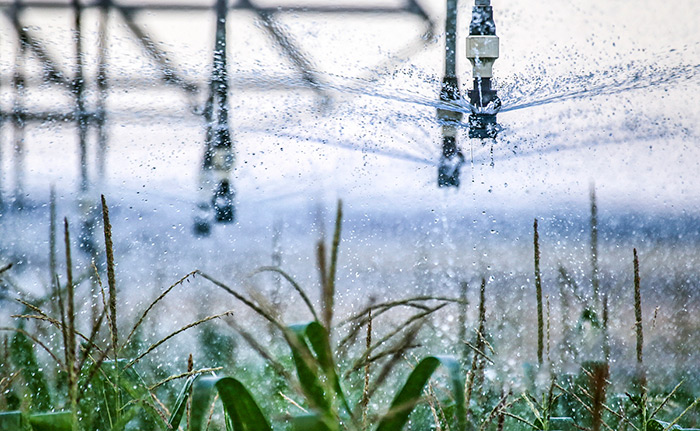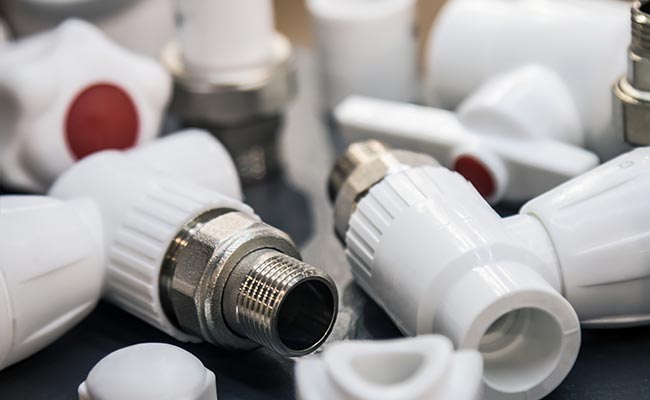உங்களுக்கு கசிவு அல்லது உடையாத ஒரு வால்வு தேவை, ஆனால் PVC மிகவும் மலிவானதாகவும் எளிமையாகவும் தெரிகிறது. தவறான பகுதியைத் தேர்ந்தெடுப்பது வெள்ளத்தில் மூழ்கும் பட்டறை மற்றும் விலையுயர்ந்த செயலிழப்பு நேரத்தைக் குறிக்கும்.
உயர்தரம்பிவிசி பந்து வால்வுகள்அவற்றின் நோக்கம் கொண்ட பயன்பாடுகளுக்கு மிகவும் நம்பகமானவை. அவற்றின் நம்பகத்தன்மை அவற்றின் எளிமையான வடிவமைப்பு மற்றும் துரு மற்றும் அரிப்புக்கு முழுமையான நோய் எதிர்ப்பு சக்தியிலிருந்து உருவாகிறது, இவை பல நீர் அமைப்புகளில் உலோக வால்வுகளுக்கான முக்கிய தோல்வி புள்ளிகளாகும்.

நம்பகத்தன்மை குறித்த கேள்வி எல்லா நேரங்களிலும் எழுகிறது. இந்தியாவில் நான் பணிபுரியும் கொள்முதல் மேலாளரான கபில் மோத்வானியுடன் சமீபத்தில் பேசிக் கொண்டிருந்தேன். கடற்கரையில் மீன் மற்றும் இறால் வளர்க்கும் பல மீன்வளர்ப்பு வணிகங்களுக்கு அவர் பொருட்களை வழங்குகிறார். அவர்கள் முன்புபித்தளை வால்வுகள், ஆனால் தொடர்ந்து உப்பு நீர் தெளிப்பு மற்றும் ஈரப்பதமான காற்று இரண்டு வருடங்களுக்குள் அவற்றை அரித்துவிடும். கைப்பிடிகள் அழுக்கடைந்துவிடும் அல்லது உடல்களில் துளை கசிவுகள் ஏற்படும். அவர் அவற்றை எங்கள் Pntek க்கு மாற்றியபோதுபிவிசி பந்து வால்வுகள், பிரச்சனை மறைந்துவிட்டது. ஐந்து ஆண்டுகளுக்குப் பிறகு, அதே PVC வால்வுகள் சரியாக இயங்குகின்றன. உண்மையான உலகில் முக்கியமானது அந்த வகையான நம்பகத்தன்மை.
PVC பந்து வால்வு எவ்வளவு காலம் நீடிக்கும்?
நீங்கள் ஒரு அமைப்பை நிறுவுகிறீர்கள், அதன் கூறுகளை பல ஆண்டுகளாக நம்ப வேண்டியிருக்கிறது. தொடர்ந்து செயலிழந்த வால்வுகளை கிழித்து மாற்ற வேண்டியிருப்பது நீங்கள் தவிர்க்க விரும்பும் ஒரு பெரிய தலைவலி மற்றும் செலவாகும்.
நன்கு தயாரிக்கப்பட்ட PVC பந்து வால்வு 10 முதல் 20 ஆண்டுகள் வரை அல்லது சிறந்த சூழ்நிலையில் இன்னும் நீண்ட காலம் நீடிக்கும். அதன் ஆயுட்காலத்தை தீர்மானிக்கும் முக்கிய காரணிகள் PVC பொருளின் தரம், UV வெளிப்பாடு, இரசாயன இணக்கத்தன்மை மற்றும் பயன்பாட்டின் அதிர்வெண் ஆகும்.

ஒரு வால்வின் நீண்ட ஆயுள் என்பது ஒரு ஒற்றை எண் அல்ல; அது அதன் தரம் மற்றும் பயன்பாட்டின் நேரடி விளைவாகும். மிகப்பெரிய காரணி பொருள் தானே. நாங்கள் பயன்படுத்துகிறோம்100% கன்னி பி.வி.சி.. பல மலிவான உற்பத்தியாளர்கள் பயன்படுத்துகின்றனர்"மீண்டும் அரைத்தல்" - மறுசுழற்சி செய்யப்பட்ட பிளாஸ்டிக் துண்டுகள்—இது அசுத்தங்களை அறிமுகப்படுத்தி இறுதி தயாரிப்பை உடையக்கூடியதாகவும் தோல்வியடையச் செய்யும் வகையிலும் ஆக்குகிறது. மற்றொரு முக்கிய காரணி சூரிய ஒளி. நீண்ட கால UV வெளிப்பாட்டால் நிலையான PVC பலவீனமடையும், அதனால்தான் நீர்ப்பாசனம் போன்ற வெளிப்புற பயன்பாடுகளுக்கு UV-எதிர்ப்பு பதிப்புகளை நாங்கள் தயாரிக்கிறோம். இறுதியாக, உள் முத்திரைகளைக் கவனியுங்கள். எங்கள் வால்வுகள் மென்மையான, நீடித்தPTFE இருக்கைகள்ஆயிரக்கணக்கான சுழற்சிகளைக் கையாளக்கூடியது, அதேசமயம் மலிவான வால்வுகள் பெரும்பாலும் மென்மையான ரப்பரைப் பயன்படுத்துகின்றன, அவை விரைவாக கிழிந்து போகலாம் அல்லது சிதைந்துவிடும், இதனால் வால்வு சீல் செய்யத் தவறிவிடும். தரமான வால்வு என்பது வெறும் ஒரு பகுதி மட்டுமல்ல; இது நம்பகத்தன்மையில் நீண்டகால முதலீடாகும்.
PVC வால்வு ஆயுட்காலத்தை பாதிக்கும் காரணிகள்
| காரணி | உயர் தரம் (நீண்ட ஆயுள்) | தரம் குறைந்த (குறுகிய ஆயுள்) |
|---|---|---|
| பிவிசி பொருள் | 100% கன்னி பிவிசி ரெசின் | மறுசுழற்சி செய்யப்பட்ட “ரீகிரைண்ட்” பிவிசி |
| புற ஊதா பாதுகாப்பு | UV-எதிர்ப்பு விருப்பங்கள் உள்ளன | சூரிய ஒளியில் நிலையான PVC சிதைவுகள் |
| இருக்கை பொருள் | நீடித்த, குறைந்த உராய்வு PTFE | மென்மையான EPDM அல்லது NBR ரப்பர் |
| உற்பத்தி | நிலையான, தானியங்கி உற்பத்தி | சீரற்ற கையேடு அசெம்பிளி |
எது சிறந்தது பித்தளை அல்லது PVC பந்து வால்வுகள்?
நீங்கள் ஒரு பித்தளை வால்வையும் ஒரு PVC வால்வையும் அருகருகே பார்க்கிறீர்கள். விலை வித்தியாசம் மிகப்பெரியது, ஆனால் உங்கள் திட்டத்திற்கு உண்மையில் எது சிறந்த தேர்வு? தவறான முடிவு விலை உயர்ந்ததாக இருக்கலாம்.
இரண்டு பொருட்களும் உலகளவில் சிறந்தவை அல்ல; சிறந்த தேர்வு முற்றிலும் பயன்பாட்டைப் பொறுத்தது. PVC அரிக்கும் சூழல்களில் சிறந்து விளங்குகிறது மற்றும் செலவு குறைந்ததாகும். அதிக வெப்பநிலை, அதிக அழுத்தங்கள் மற்றும் அதிக உடல் வலிமை தேவைப்படும் சூழ்நிலைகளுக்கு பித்தளை சிறந்தது.

கபில் மோத்வானி குழுவினர் கேட்கும் மிகவும் பொதுவான கேள்விகளில் இதுவும் ஒன்று. விண்ணப்பத்தைப் பற்றி கேட்பதன் மூலம் எப்போதும் பதில் கிடைக்கும்.பிவிசிஅதன் வேதியியல் செயலற்ற தன்மையே அதன் சூப்பர் பவர் ஆகும். இது துருப்பிடிக்காமல் முற்றிலும் நோய் எதிர்ப்பு சக்தி கொண்டது. கிணற்று நீர், உரம், உப்பு நீர் அல்லது லேசான அமிலங்கள் சம்பந்தப்பட்ட அமைப்புகளுக்கு, PVC பித்தளையை வியத்தகு முறையில் மிஞ்சும். பித்தளை என்று அழைக்கப்படும் ஒன்றால் பாதிக்கப்படலாம்துத்தநாக நீக்கம், சில நீர் வேதியியல் கலவையிலிருந்து துத்தநாகத்தை வெளியேற்றி, அதை நுண்துளைகள் மற்றும் பலவீனமாக்குகிறது. PVC மிகவும் இலகுவானது மற்றும் கணிசமாக குறைந்த விலை கொண்டது. இருப்பினும்,பித்தளைகடினத்தன்மையைப் பொறுத்தவரை, இது தெளிவான வெற்றியாளராகும். இது PVC ஐ விட அதிக வெப்பநிலை மற்றும் அழுத்தங்களைத் தாங்கும், மேலும் இது உடல் தாக்கத்திற்கு மிகவும் எதிர்ப்புத் திறன் கொண்டது. சூடான நீர் குழாய், உயர் அழுத்த காற்று குழாய் அல்லது அது பாதிக்கப்படக்கூடிய இடத்தில் வால்வு தேவைப்பட்டால், பித்தளை பாதுகாப்பான தேர்வாகும். பெரும்பாலான குளிர்ந்த நீர் பயன்பாடுகளுக்கு, PVC சிறந்த நீண்ட கால மதிப்பை வழங்குகிறது.
பிவிசி vs. பித்தளை: ஒரு நேரடி ஒப்பீடு
| அம்சம் | பிவிசி பால் வால்வு | பித்தளை பந்து வால்வு | வெற்றியாளர்… |
|---|---|---|---|
| அரிப்பு எதிர்ப்பு | சிறப்பானது | நல்லது (ஆனால் துத்தநாக நீக்கத்திற்கு ஆளாகக்கூடியது) | பிவிசி |
| வெப்பநிலை வரம்பு | ~140°F (60°C) | >200°F (93°C) | பித்தளை |
| அழுத்த மதிப்பீடு | நல்லது (எ.கா., 150 PSI) | சிறந்தது (எ.கா., 600 PSI) | பித்தளை |
| செலவு | குறைந்த | உயர் | பிவிசி |
PVC வால்வுகள் ஏதேனும் நல்லதா?
நீங்கள் தரத்தைத் தேடுகிறீர்கள், ஆனால் PVC வால்வுகளின் குறைந்த விலை உண்மையாக இருக்க முடியாது என்று தோன்றுகிறது. இப்போது சில டாலர்களைச் சேமிப்பது பின்னர் பெரிய தோல்விகளுக்கு வழிவகுக்கும் என்று நீங்கள் கவலைப்படுகிறீர்கள்.
ஆம், உயர்தர PVC வால்வுகள் மிகவும் சிறந்தவை மற்றும் அவற்றின் நோக்கம் கொண்ட பயன்பாட்டிற்கு விதிவிலக்கான மதிப்பை வழங்குகின்றன. நல்ல முத்திரைகள் கொண்ட கன்னிப் பொருட்களால் செய்யப்பட்ட நன்கு தயாரிக்கப்பட்ட PVC வால்வு எண்ணற்ற நீர் மேலாண்மை பயன்பாடுகளுக்கு ஒரு வலுவான மற்றும் மிகவும் நம்பகமான அங்கமாகும்.

PVC பந்து வால்வுகள் தோல்வியடைகிறதா?
நீங்கள் மீண்டும் ஒருபோதும் யோசிக்க வேண்டிய அவசியமில்லாத ஒரு கூறுகளை நிறுவ விரும்புகிறீர்கள். ஆனால் ஒவ்வொரு பகுதிக்கும் ஒரு முறிவுப் புள்ளி உள்ளது, மேலும் அது தெரியாமல் இருப்பது தடுக்கக்கூடிய பேரழிவுகளுக்கு வழிவகுக்கும்.
ஆம், PVC பந்து வால்வுகள் தோல்வியடையக்கூடும், ஆனால் தோல்விகள் எப்போதும் தவறான பயன்பாடு அல்லது முறையற்ற நிறுவலால் ஏற்படுகின்றன, தரமான வால்வின் குறைபாட்டால் அல்ல. தோல்விக்கான மிகவும் பொதுவான காரணங்கள் உறைதல், பொருந்தாத இரசாயனங்கள் அல்லது சூடான நீருக்கு வெளிப்பாடு மற்றும் உடல் சேதம்.

பொதுவான தோல்வி முறைகள் மற்றும் தடுப்பு
| தோல்வி முறை | காரணம் | அதை எவ்வாறு தடுப்பது |
|---|---|---|
| விரிசல் உடல் | உறைபனி நீர்; அதிகமாக இறுக்குதல். | உறைவதற்கு முன் குழாய்களை வடிகட்டவும்; கையால் இறுக்கி, ஒரு குறடு மூலம் ஒரு திருப்பத்தை செய்யவும். |
| கசிவு கைப்பிடி | தேய்ந்த அல்லது கிழிந்த தண்டு O-வளையங்கள். | இரட்டை O-வளையங்கள் கொண்ட தரமான வால்வைத் தேர்வு செய்யவும். |
| மூடும்போது கசிவு | கீறப்பட்ட பந்து அல்லது இருக்கைகள். | நிறுவுவதற்கு முன் குழாய்களை ஃப்ளஷ் செய்யவும்; முழுமையாக திறந்த/மூடிய நிலைகளுக்கு மட்டுமே பயன்படுத்தவும். |
| உடைந்த கைப்பிடி | புற ஊதா சேதம்; சிக்கிய வால்வில் அதிகப்படியான அழுத்தம். | வெளிப்புறங்களில் UV-எதிர்ப்பு வால்வுகளைப் பயன்படுத்துங்கள்; விறைப்புக்கான காரணத்தை ஆராயுங்கள். |
முடிவுரை
உயர்தர PVC பந்து வால்வுகள் மிகவும் நம்பகமானவை. அரிப்பை எதிர்க்கும் தன்மை பல நீர் பயன்பாடுகளில் உலோகத்தை விட அவற்றுக்கு ஒரு பெரிய நன்மையை அளிக்கிறது. தரமான தயாரிப்பைத் தேர்ந்தெடுப்பதன் மூலம், நீங்கள் நீண்ட கால, நம்பகமான செயல்திறனை உறுதி செய்கிறீர்கள்.
இடுகை நேரம்: ஜூலை-15-2025





